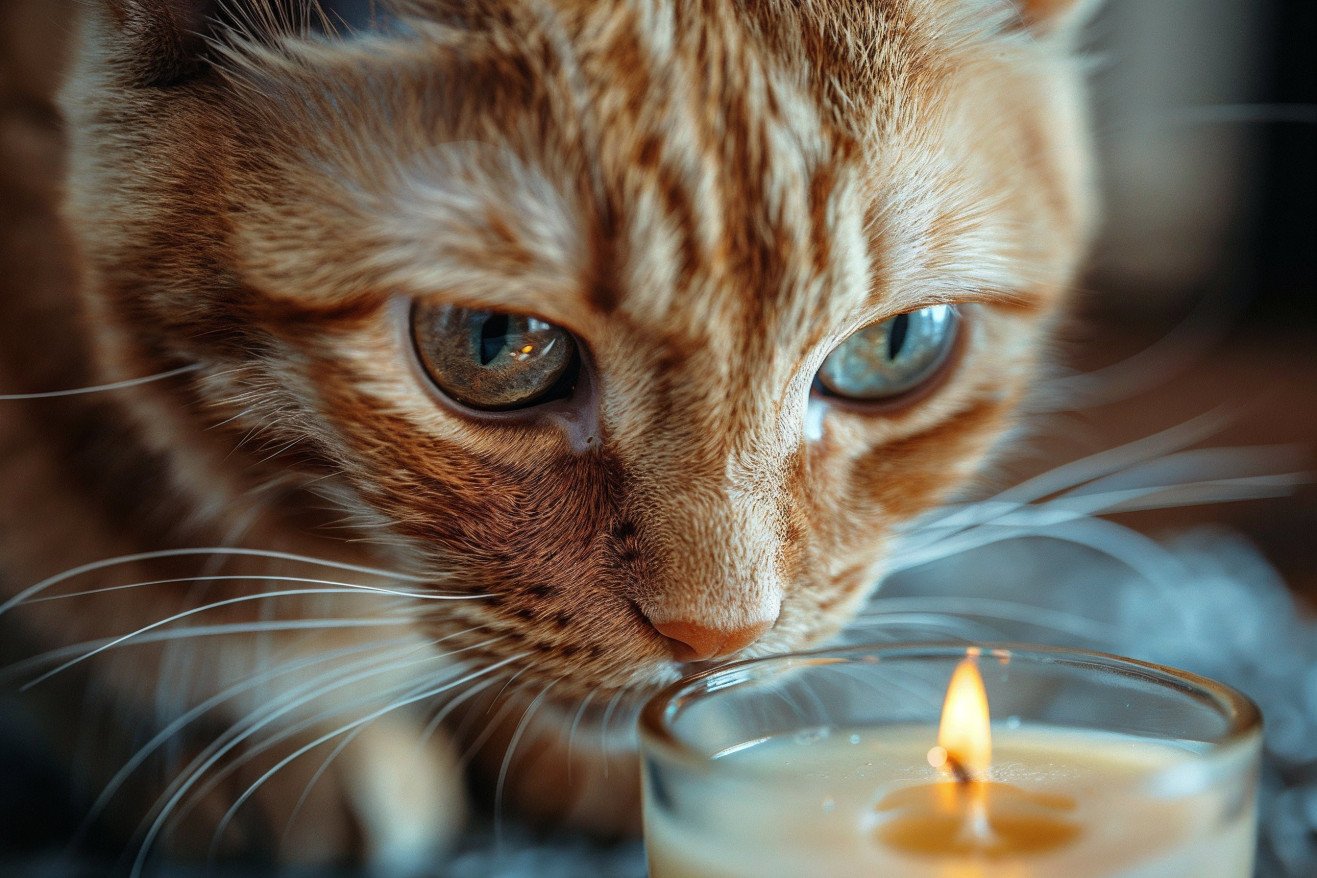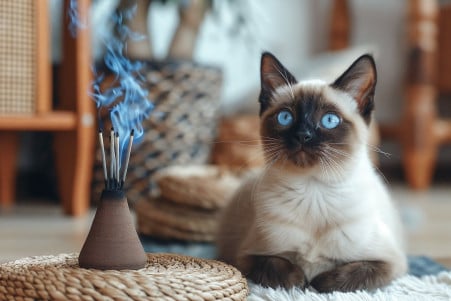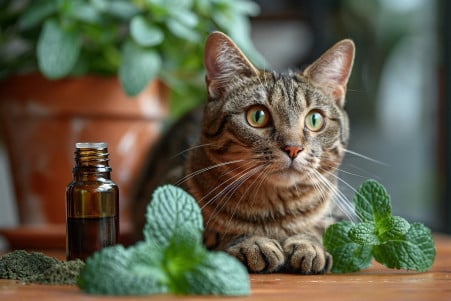Can Cats Be Around Citronella? What the Science Says
11 June 2024 • Updated 10 June 2024

Citronella is a popular natural insect repellent, but its safety for cats has been questioned. While not especially poisonous, citronella oils and plants can be toxic to cats, causing vomiting, diarrhea, and respiratory problems if ingested in large amounts. As a result, it's recommended to limit the use of citronella products around pets and to make sure that citronella plants are not accessible to them.
To offer a complete picture of the impact of citronella on cats, we will review research from veterinary toxicology and animal welfare publications. This includes case studies, assessments of the chemicals in citronella, and suggestions from experts for pet owners. This article will summarize these studies to help you understand the potential dangers and precautions to consider when using citronella around your cats.
Is citronella safe for cats?
Potential Dangers and Side Effects of Citronella Exposure in Cats
Citronella essential oils and citronella-based products like candles and torches are toxic to cats if ingested or inhaled, according to JustAnswer. Side effects of citronella poisoning can include vomiting, diarrhea, drooling, respiratory distress, tremors, and even liver damage in extreme cases, according to Greg.app and Wagwalking.com.
It is important to seek veterinary care immediately if you believe your cat has ingested or been exposed to citronella, even if they aren't showing any signs of poisoning. According to Nikura, side effects or long-term exposure can result in more serious issues like kidney failure, so it's important to get treatment as soon as possible to avoid permanent damage. If your cat is experiencing respiratory distress, excessive drooling, or other serious symptoms after being exposed to citronella, it's considered a veterinary emergency and you should seek care for your pet right away.
Safe and Pet-Friendly Citronella Alternatives for Mosquito Control
There are a number of natural and pet-friendly citronella alternatives that can help you control mosquitoes around cats. For example, Sunshine Sunrooms notes that plants such as basil, lemon balm, rosemary, and catnip are all effective at repelling mosquitoes and safe for cats.
Mosquito traps that use buckets, water, and Mosquito Dunks or Bits can also be used to control mosquitoes without harming pets, as described by 4-Legger and Native Nurseries. Meanwhile, essential oils like lavender, lemongrass, and cedarwood can be used in diffusers or as natural repellents if they are properly diluted and used carefully, according to JustAnswer.
By trying out these safe and pet-friendly options, you can control mosquitoes around your cats without exposing them to the potential dangers of citronella-based products.
Why Are Essential Oils Bad for Cats?
Cats are unable to metabolize certain compounds in essential oils, which can lead to toxicity and other health issues, according to Forbes Advisor. Ingestion, skin contact, and inhalation are all ways that cats can be exposed to essential oils, and these exposures can cause symptoms such as vomiting, tremors, and respiratory distress, according to PetMD.
Even passive diffusers can be problematic because the oil droplets that are released can irritate a cat's respiratory system or be ingested during grooming, according to Pet Poison Helpline. Although some essential oils, such as lavender and cedarwood, may be less toxic when diluted, it's still important to be careful and to talk to a vet before using essential oils around cats.
Pet-Safe Pest Control: Integrated Approaches for a Mosquito-Free Environment
To effectively control mosquitoes, it is often necessary to use a combination of methods and techniques. For example, The Whole Pet Vet and Wellness Center explains that removing standing water and keeping the lawn well-maintained can help to reduce the number of mosquitoes in the yard. Meanwhile, Preventive Vet notes that using physical barriers like window screens and fans can help keep mosquitoes out of the house.
Natural repellents like citronella-free candles, sachets, or sprays can be used to add an extra layer of protection in outdoor spaces, according to The Whole Pet Vet and Wellness Center. It’s important to continually assess and modify the pest control program to make sure it is working effectively, and this will help ensure that the resulting environment is as comprehensive and pet-friendly as possible.
Conclusion: Making Pet Safety a Priority in Mosquito Control
Essential oils, including citronella, can be toxic to pets, especially cats. According to the Pet Poison Helpline, cats don’t have a specific enzyme in their liver and are unable to metabolize phenols and phenolic compounds that are found in some essential oils. This can lead to toxicity through ingestion, skin contact, or inhalation, and can cause symptoms such as drooling, vomiting, tremors, and difficulty breathing.
Even reed diffusers can be dangerous because the oil droplets can be inhaled and cause respiratory irritation or ingested when a cat grooms itself. While some essential oils may be less toxic when diluted, it’s important to be careful and talk to a vet before using any essential oils around cats, as noted by AERCMN.


